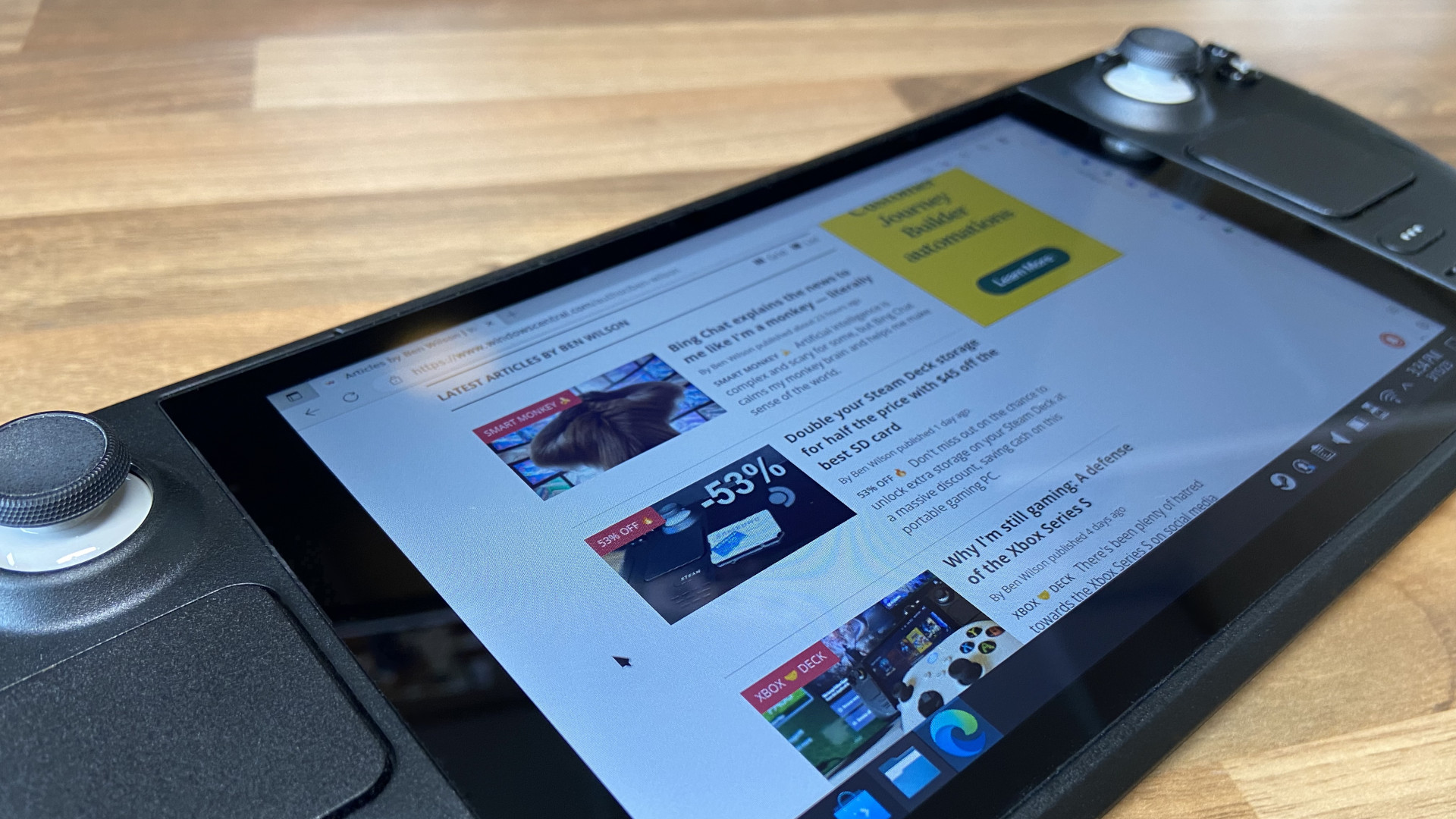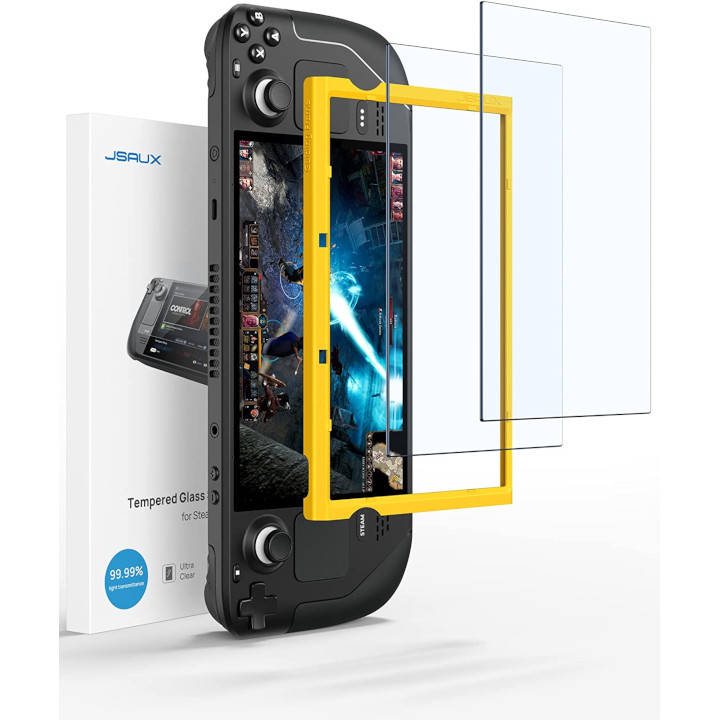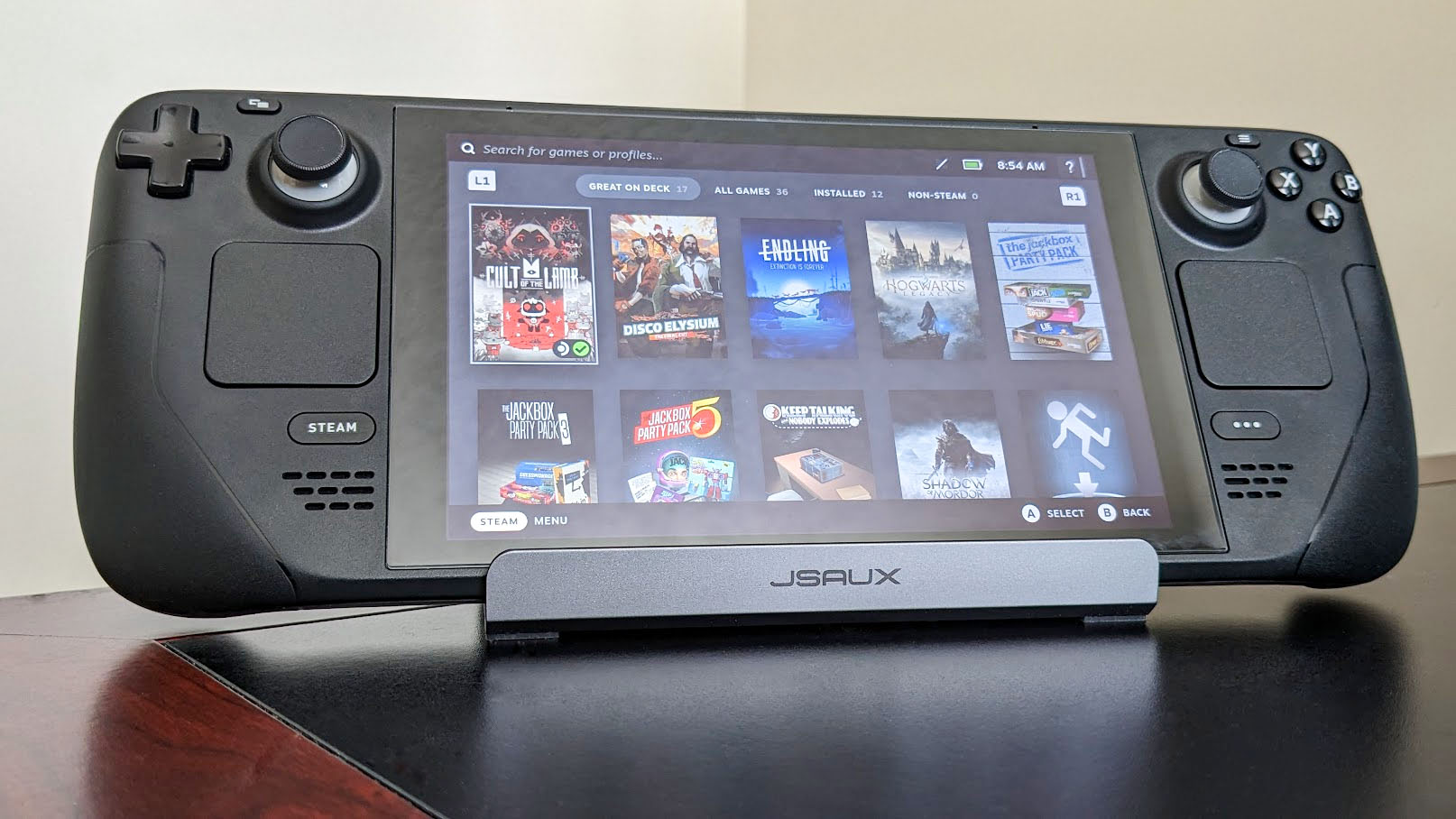Valve responds to OLED Steam Deck requests: It’s harder than you think
The Steam Deck is great, but screen glare is a real issue.

All the latest news, reviews, and guides for Windows and Xbox diehards.
You are now subscribed
Your newsletter sign-up was successful
What you need to know
- The Steam Deck is a portable gaming handheld that plays a vast library of games designed for PC, including those originally designed for Windows.
- Wes Fenlon, senior editor of PC Gamer, contacted Valve to query their stance on upgrading the Steam Deck with an OLED panel, replacing the stock LCD variant.
- Although Valve's Pierre-Loup Griffais sees the appeal of OLED screens, he explains that incremental upgrades are complicated and not currently a priority for the company.
Reaching out to query the manufacturer's stance on Steam Deck display upgrades, senior editor Wes Fenlon from PC Gamer contacted Valve's Pierre-Loup Griffais to ask about the potential for an OLED model. The portable PC gaming handheld recently celebrated its first anniversary since its release, escaping the early days of pre-orders and delayed shipping to the almost worldwide availability of today (sorry, Australia). Still, not everyone is satisfied with the hardware.
Drawing comparisons to the refreshed Nintendo Switch enhanced by an OLED screen, Wes rightly claims that anyone who lays their eyes on the wide colors and deep brightness range offered by the high-end screen tech is unlikely to choose against it. Other handheld devices might not match up to the raw horsepower of real-time PC gaming, but our review of the Razer Edge shows that alternatives in cloud gaming show promise with AMOLED panels.
Rather than speculating, Pierre-Loup gave PC Gamer a direct answer as to why Valve hasn't yet pursued the idea of an OLED upgrade to the Steam Deck.
"(Valve) understands the limitations of the current tech that's in the Deck, in terms of the screen. We also want it to be better. We're looking at all avenues," he says. But the longer answer is that there's a lot more to swapping out a screen than just… swapping out a screen."
As a big fan of the Steam Deck and an owner of the console, I can help explain the resistance by pointing out the many iterations Valve went through before finalizing its mass-produced design. Every component was chosen to balance size, thermal output, and cost.
Simply swapping out the standard LCD panel for an OLED alternative isn't so straightforward without considering the cost to consumers.
"I think people are looking at things like an incremental version and assume that it's an easy drop-in," Griffais says. "But in reality, the screen's at the core of the device. Everything is anchored to it. Basically everything is architected around everything when you're talking about a device that small. I think it would be a bigger amount of work than people are assuming it would be."
All the latest news, reviews, and guides for Windows and Xbox diehards.
Incremental upgrades are seemingly a non-mover for Valve regarding the Steam Deck. However, a future successor seems likely to lean towards OLED or one of its alternatives to power the display. Part of the appeal to the portable handheld is its open nature for optional tweaking, despite hundreds of games verified for Steam Deck working out of the proverbial box. Customizable refresh rates and dynamic resolutions were tested with the default LCD screen in mind, so more significant considerations are needed to make any mid-generational switch.
Screen glare is an unfortunate downside to the current model. Still, it can be remedied with selections from the best Steam Deck accessories, such as screen protectors designed explicitly to combat reflections. Wes also points to community-made plugins like vibrantDeck that can bump up the saturation and gamma of any game, something I can wholeheartedly recommend.

Prevent scratches and cracks from blemishing your Steam Deck with this screen protector from JSAUX. Perhaps not a brand name you recognize, but they're manufacturing a range of high-quality add-ons.

Ben is a Senior Editor at Windows Central, covering everything related to technology hardware and software. He regularly goes hands-on with the latest Windows laptops, components inside custom gaming desktops, and any accessory compatible with PC and Xbox. His lifelong obsession with dismantling gadgets to see how they work led him to pursue a career in tech-centric journalism after a decade of experience in electronics retail and tech support.

